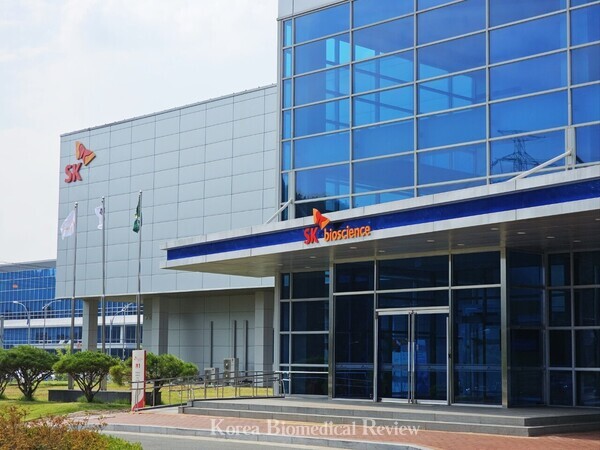SK bioscience said Monday that it has begun global phase 1 and 2 clinical trials for GBP560, its mRNA-based vaccine candidate for Japanese encephalitis.

The company expects the vaccine development to not only provide protection against Japanese encephalitis but also establish an mRNA platform that can be adapted rapidly to combat emerging infectious diseases, including the hypothetical ‘Disease X.’
The approach aligns with the "100-Day Mission," a global initiative led by the Coalition for Epidemic Preparedness Innovations (CEPI), the G7, and G20 to accelerate vaccine development for pandemic threats to within three months of identifying a new pathogen.
The project stems from a 2022 research and development agreement with CEPI, which initially provided $40 million to support preclinical and early-stage clinical trials for Japanese encephalitis and Lassa fever vaccines. An additional $100 million could be granted to support late-stage trials and regulatory approvals, further validating the mRNA platform for pandemic response.
Through this project, the company aims to establish an mRNA vaccine platform that addresses both pandemic threats and other infectious diseases, strengthening its global competitiveness.
Unlike traditional vaccine technologies, mRNA vaccines allow for rapid mass production by utilizing genetic sequences, making them well-suited for pandemic response.
During the phase 1/2 trials, SK bioscience will evaluate the immunogenicity and safety of GBP560 in 402 healthy adult participants in Australia and New Zealand.
The first phase will test different dosages—low, medium, and high—alongside a control group, with two shots administered 28 days apart. Based on these results, the second phase will assess the optimal dosage regimen. The company expects interim results by 2026.
In preclinical studies, GBP560 demonstrated superior safety and immunogenicity through repeated-dose toxicity studies, safety pharmacology tests, and protective immunity assessments.
SK bioscience and CEPI have pledged to ensure global equitable access to the vaccines developed under this project. Under the funding agreement, SK bioscience committed to prioritizing supply for low- and middle-income countries, producing adequate vaccine volumes to meet public health needs, and setting affordable pricing, in line with CEPI’s Equitable Access Policy.
“We don’t know when the next Disease X will emerge, but we know it is coming,” CEPI CEO Richard Hatchett said. “Developing technologies in advance using mRNA allows us to avoid delays in creating new vaccines when a viral threat appears.”
This approach allows for swift and equitable containment of future outbreaks, Hatchett added.
SK bioscience CEO Ahn Jae-yong said, “Expanding our mRNA capabilities will enable rapid responses to emerging diseases while ensuring equitable access to vaccines.”
SK bioscience is committed to advancing this clinical trial successfully, contributing to public health, and strengthening its position in global vaccine R&D, Ahn added.
Related articles
- SK bioscience completes WHO-led SARS virus international standard material project
- SK bioscience swings to loss in 2024 on R&D spend but bets on IDT Biologika for turnaround
- SK bioscience, Sanofi expand partnership to strengthen vaccine cooperation in Korea
- SK bioscience wins additional varicella vaccine orders in Latin America
- SK bioscience ships 750,000 flu vaccine doses to Southeast Asia, Latin America
- Gates Foundation polio lead, Antwerp researcher win 2025 Park MahnHoon Award
- SK biopharmaceuticals taps 1st female board chair, adds two outside directors
- SK bioscience appoints former MFDS head Lee as outside director

